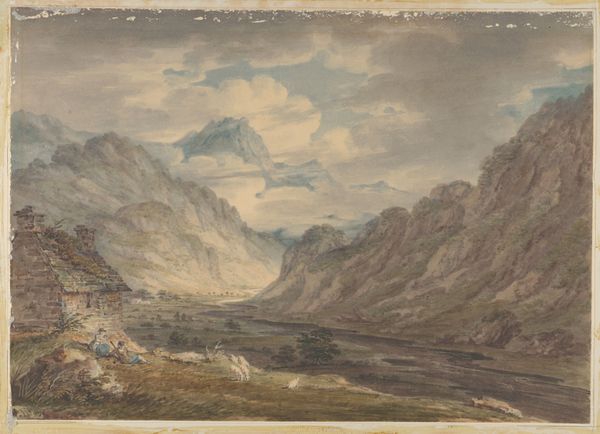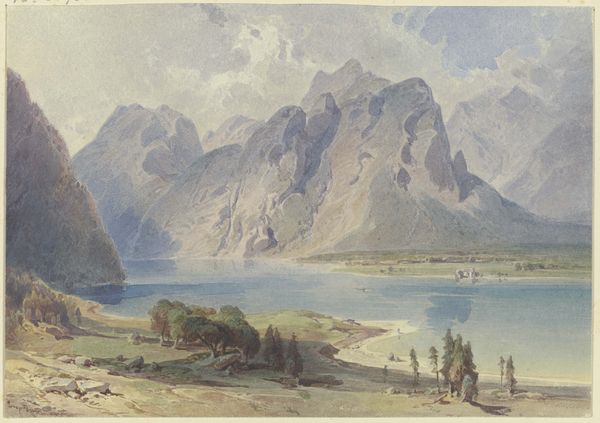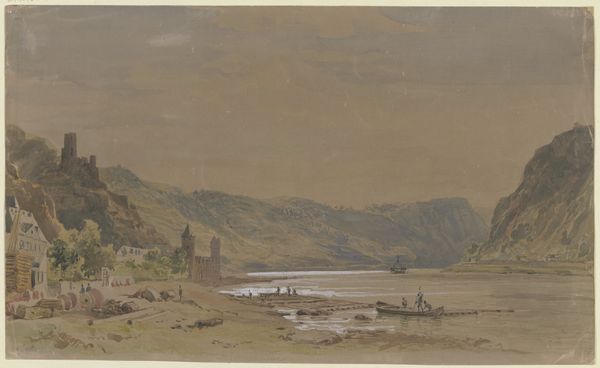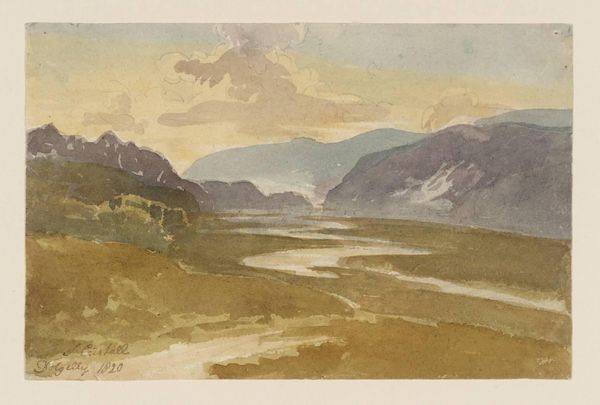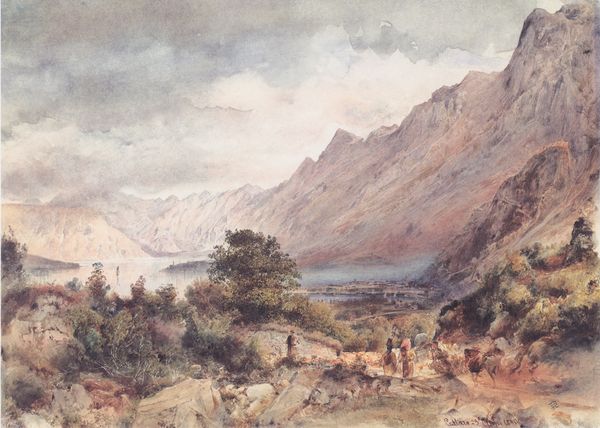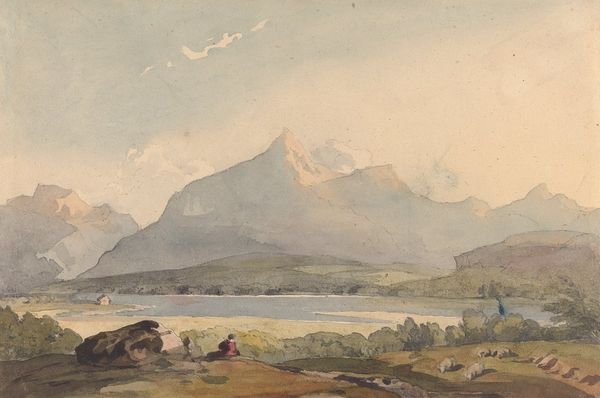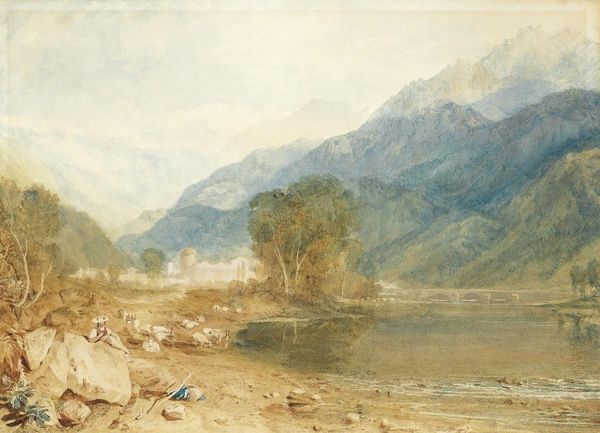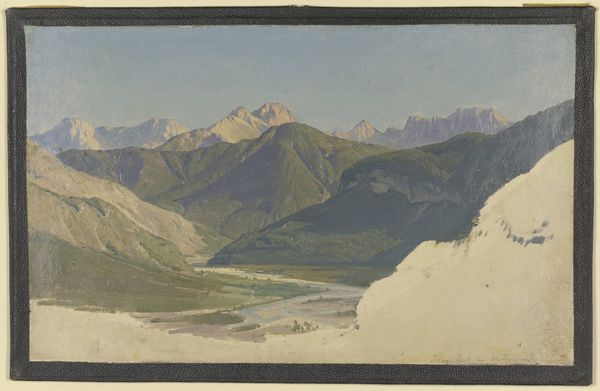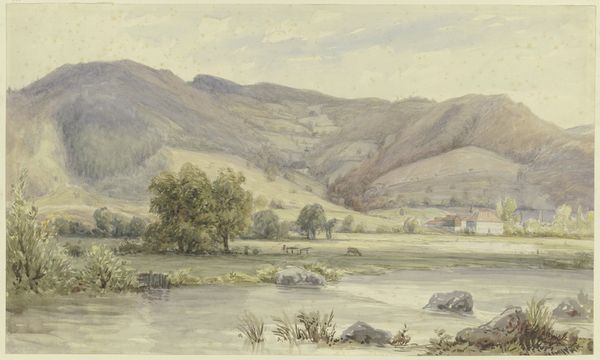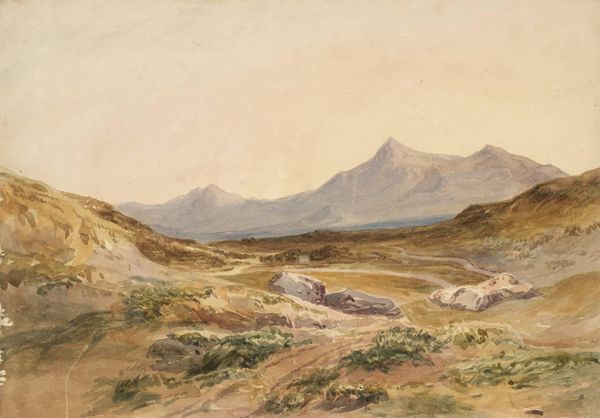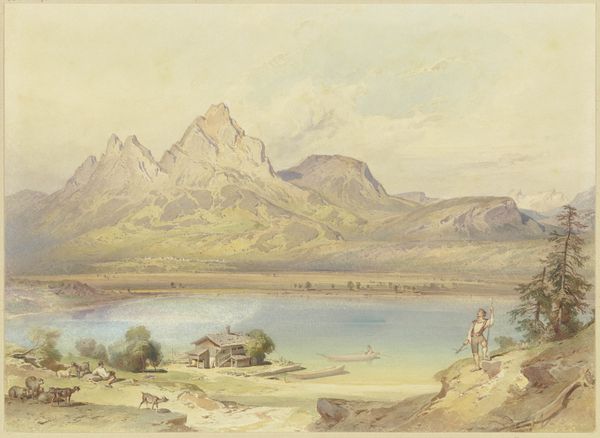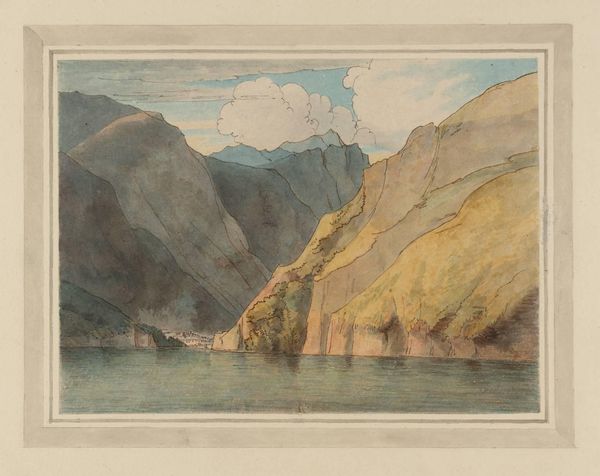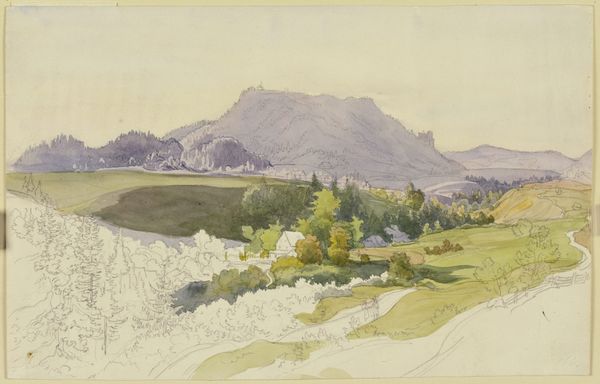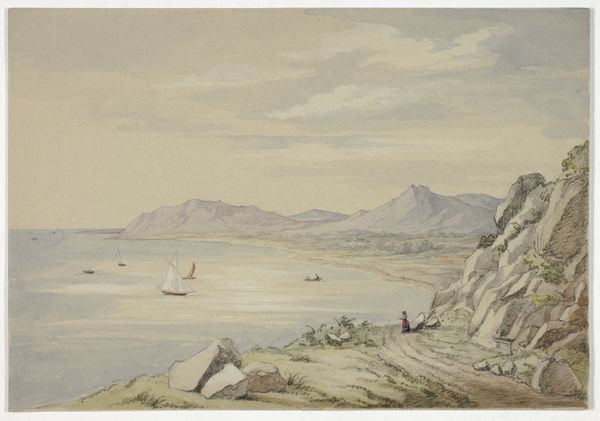
drawing, watercolor
#
drawing
#
16_19th-century
#
landscape
#
charcoal drawing
#
watercolor
#
german
#
romanticism
#
watercolor
Copyright: Public Domain
Curator: Welcome, everyone. Today, we’re looking at a work entitled "From the Inn valley." Carl Rottmann, the German artist, made this artwork during the 19th century. The mediums involved appear to be a combination of drawing and watercolor, perhaps with charcoal detailing too. What do you think of this artwork? Editor: There's a quiet drama about it. All soft edges and light – you can almost hear the muted sounds of water and distant cowbells. Makes me want to bundle up in a woolen blanket. Curator: Rottmann's landscape is definitely invoking the aesthetic of the romantic movement, inviting contemplation on the natural world. It would be interesting to know about Rottman's watercolor production, particularly the source of their pigments. Pigments extracted from organic or mineral sources? It matters because supply chains structure production, especially during a pre-industrial economy like Germany's during this period. Editor: That’s an intriguing way to view the painting: how pigments literally underpin perception, the colors shaping our emotional response. But perhaps his romantic vision depended less on the *what* than the *how*. The light almost dissolves the forms; the misty atmosphere becomes a veil over reality. Did Rottmann aim to capture not a valley, but the feeling of *being* in the valley? Curator: Yes, but there is the problem of who has access to those experiences of landscape. Rottman seems not overly focused on labor exploitation during its creation or its value as a symbol of wealth to be possessed by the affluent and powerful. Editor: A fair point! Yet the painting resonates beyond mere material worth, capturing a collective dream of natural peace. It might be the accessibility of drawing as a low-production means that the landscape itself remains an active character for an expanded number of people rather than being owned. Perhaps Rottmann, even unwittingly, democratizes that experience in his watercolor. Curator: Well, it also helps for our present moment to rethink nature less as something picturesque, more as a site of materials production – where human actions constantly shape the land. Looking closely at landscape representation also means understanding changing economic conditions. Editor: Point taken. But when I look at this watercolor, I'm less focused on class dynamics. It gives you the impression that even mountains breathe, in a similar way to us! Curator: Thank you both for those observations! Let's move on to the next artwork.
Comments
No comments
Be the first to comment and join the conversation on the ultimate creative platform.
